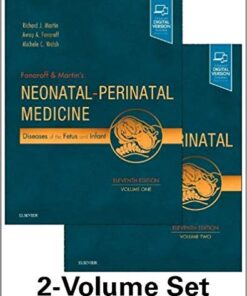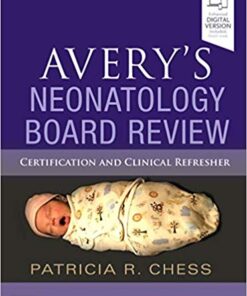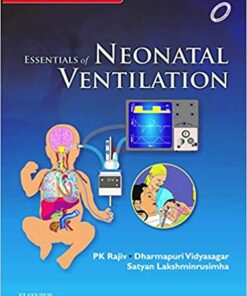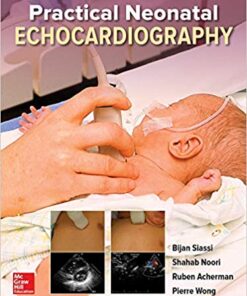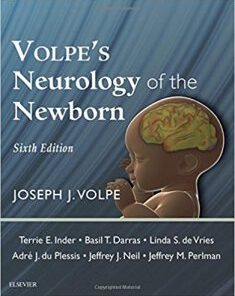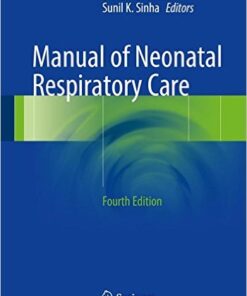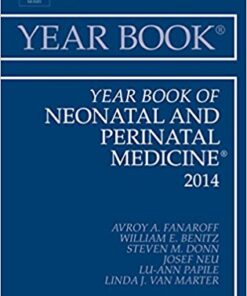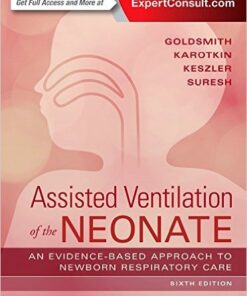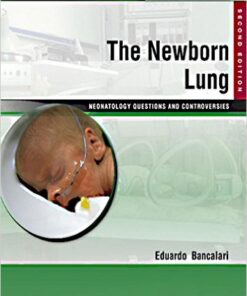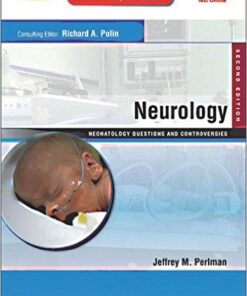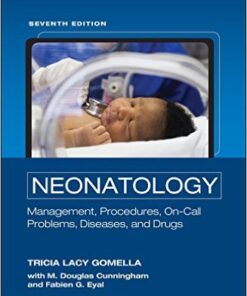Discover the World of Neonatology with SurgeryBook.net
Are you interested in learning more about neonatology? Do you want to understand the latest advances in the field and how they can help improve the health of newborns? Then visit SurgeryBook.net today! Our comprehensive resource provides detailed information on neonatal care, including the latest research, best practices, and clinical guidelines. We also offer a wide range of educational materials, such as webinars, podcasts, and articles, to help you stay up-to-date on the latest developments in neonatology. With SurgeryBook.net, you can gain the knowledge and skills you need to provide the highest quality of care for your patients. So don’t wait any longer – explore the world of neonatology today!
NEONATOLOGY
NEONATOLOGY
NEONATOLOGY
NEONATOLOGY
NEONATOLOGY
NEONATOLOGY
NEONATOLOGY
Hematology, Immunology and Infectious Disease: Neonatology Questions and Controversies 2nd Edition
NEONATOLOGY
NEONATOLOGY
NEONATOLOGY
NEONATOLOGY
Introduction
Neonatology is a specialized field of medicine that focuses on the care of newborns. It is an important area of study for medical professionals, as newborns require special attention and care to ensure their health and well-being. Understanding neonatology can help healthcare providers provide the best possible care for newborns and their families. This article will provide an overview of neonatology, including what it is, why it is important, and what you need to know about caring for newborns.
The Basics of Neonatal Care: What You Need to Know
Neonatal care is a specialized branch of medicine that focuses on the health and well-being of newborn babies. It is an important part of the medical field, as it helps to ensure that newborns are healthy and safe during their first few weeks of life. Neonatal care involves providing medical care for premature or ill infants, monitoring the growth and development of newborns, and providing support to families during this critical time.
The basics of neonatal care involve providing comprehensive medical care for newborns. This includes assessing the baby’s physical condition, providing nutrition, monitoring vital signs, and providing emotional support to the family. In addition, neonatal care providers may also provide advice on parenting and infant care.
When caring for a newborn, it is important to be aware of the baby’s needs and to provide appropriate care. This includes monitoring the baby’s temperature, weight, and breathing rate. It is also important to monitor the baby’s feeding habits and to provide adequate nutrition. Additionally, it is important to provide emotional support to the family and to help them adjust to the new arrival.
Neonatal care providers must also be aware of any potential risks or complications that may arise during the baby’s first few weeks of life. This includes monitoring for jaundice, infections, and other conditions that can affect the baby’s health. It is also important to be aware of any medications or treatments that may be necessary for the baby.
Neonatal care providers must also be knowledgeable about the various types of tests and procedures that may be necessary for the baby. These include blood tests, ultrasounds, and other imaging tests. Additionally, they must be familiar with the different types of treatments that may be necessary for the baby, such as antibiotics, oxygen therapy, and other forms of medical intervention.
Finally, neonatal care providers must be able to provide support and guidance to the family during this difficult time. This includes helping the family understand the baby’s needs and providing emotional support. Additionally, they should be able to provide information about the baby’s development and answer any questions that the family may have.
Neonatal care is an important part of the medical field, as it helps to ensure that newborns are healthy and safe during their first few weeks of life. By understanding the basics of neonatal care, healthcare providers can provide the best possible care for newborns and their families.
Common Conditions and Treatments in Neonatology
Neonatology is a specialized branch of medicine that focuses on the care of newborn infants, especially those who are born prematurely or with medical complications. Common conditions and treatments in neonatology involve a wide range of issues, from respiratory distress to congenital heart defects.
Respiratory Distress Syndrome (RDS) is one of the most common conditions seen in neonatal intensive care units. RDS occurs when the lungs are unable to produce enough surfactant, a substance that helps keep the air sacs in the lungs open. Without enough surfactant, the air sacs collapse, making it difficult for the baby to breathe. Treatment for RDS typically involves providing supplemental oxygen and administering a synthetic form of surfactant. In some cases, mechanical ventilation may be necessary.
Another common condition seen in neonatology is sepsis, which is an infection of the bloodstream. Sepsis can be caused by bacteria, viruses, or fungi, and can lead to serious complications such as organ failure and death. Treatment for sepsis usually involves antibiotics and supportive care, such as intravenous fluids and oxygen.
Congenital heart defects are also common in newborns. These defects can range from minor problems, such as a hole in the heart, to more serious issues, such as a blocked artery or a missing valve. Treatment for congenital heart defects depends on the severity of the defect, but may include medications, surgery, or a combination of both.
Finally, jaundice is another common condition seen in neonatology. Jaundice occurs when there is an excess of bilirubin, a yellow pigment, in the blood. Treatment for jaundice typically involves phototherapy, which uses special lights to break down the bilirubin in the baby’s blood.
These are just a few of the common conditions and treatments seen in neonatology. While these conditions can be serious, they can often be managed with proper medical care. It is important for parents to be aware of the signs and symptoms of these conditions so that they can seek prompt medical attention if needed.
Understanding the Role of the Neonatal Nurse
The role of the neonatal nurse is an incredibly important one, as they are responsible for providing care to newborns and their families. Neonatal nurses work in a variety of settings, including hospitals, birthing centers, and private practices. They provide specialized care to premature and critically ill infants, as well as those with congenital or acquired conditions.
Neonatal nurses must have a strong understanding of the unique needs of newborns and their families. They must be able to assess the health of the infant, monitor vital signs, and provide appropriate interventions when necessary. They must also be knowledgeable about the latest treatments and technologies available to treat newborns.
Neonatal nurses must also be compassionate and caring. They must be able to provide emotional support to parents who may be overwhelmed by the birth of a premature or sick baby. They must also be able to communicate effectively with other healthcare professionals, such as pediatricians and specialists, to ensure that the best possible care is provided to the infant.
Neonatal nurses must also be organized and detail-oriented. They must be able to keep accurate records of the infant’s medical history, medications, and treatments. They must also be able to coordinate with other healthcare professionals to ensure that the infant receives the best possible care.
Neonatal nurses must also be able to work independently and as part of a team. They must be able to collaborate with other healthcare professionals to develop individualized plans of care for each infant. They must also be able to recognize potential problems and take appropriate action to address them.
The role of the neonatal nurse is an incredibly important one, as they are responsible for providing care to newborns and their families. Neonatal nurses must have a strong understanding of the unique needs of newborns and their families, as well as the latest treatments and technologies available to treat them. They must also be compassionate and caring, organized and detail-oriented, and able to work both independently and as part of a team. With these skills, neonatal nurses can help ensure that newborns receive the best possible care.
The Importance of Nutrition for Newborns
Nutrition is essential for newborns to ensure they have the best start in life. It is important for their physical and mental development, as well as their overall health. Newborns need a balanced diet that includes all the essential nutrients, vitamins, minerals, and calories needed for growth and development.
The first few weeks of life are critical for newborns, as this is when their bodies are rapidly growing and developing. During this time, it is important to provide them with the right nutrition to support their growth and development. Breast milk is the ideal source of nutrition for newborns, as it contains all the essential nutrients, vitamins, minerals, and calories needed for healthy growth and development. Breast milk also provides antibodies that help protect babies from infections and illnesses. If breastfeeding is not possible, infant formula can be used as an alternative.
It is important to ensure that newborns get enough calories and nutrients to meet their needs. This means providing them with adequate amounts of breast milk or formula, as well as other foods such as fruits, vegetables, grains, and proteins. It is also important to make sure that newborns are getting enough fluids, such as water or juice.
Newborns should also receive regular check-ups to ensure they are growing and developing properly. During these check-ups, the doctor will assess the baby’s weight, height, and head circumference to make sure they are meeting the expected milestones. The doctor may also recommend certain supplements or vitamins if needed.
Good nutrition is essential for newborns to ensure they have the best start in life. It is important to provide them with the right balance of nutrients, vitamins, minerals, and calories to support their growth and development. Breast milk is the ideal source of nutrition for newborns, but if breastfeeding is not possible, infant formula can be used as an alternative. Regular check-ups are also important to ensure the baby is growing and developing properly.
Strategies for Caring for Premature Babies
Caring for premature babies can be a challenging and emotional experience for parents. Premature babies are born before 37 weeks of gestation, and they require special care to ensure their health and development. Here are some strategies for caring for premature babies:
1. Monitor the baby’s vital signs. Premature babies may have difficulty regulating their body temperature, breathing, and heart rate. It is important to monitor these vital signs closely to ensure that the baby is healthy and developing properly.
2. Provide adequate nutrition. Premature babies often have difficulty digesting and absorbing nutrients. It is important to provide them with adequate nutrition to ensure proper growth and development. This may include breast milk, formula, or specialized formulas designed for premature babies.
3. Keep the baby warm. Premature babies are more susceptible to cold temperatures than full-term babies. It is important to keep the baby warm by using blankets, hats, and other clothing items.
4. Stimulate the baby’s senses. Premature babies may not be able to respond to stimuli as well as full-term babies. It is important to stimulate the baby’s senses through touch, sound, and sight. This can help the baby develop and grow.
5. Encourage bonding. Bonding with the baby is an important part of caring for a premature baby. Skin-to-skin contact, talking to the baby, and providing physical comfort can all help the baby feel secure and loved.
Caring for a premature baby can be a difficult and emotional experience. However, with the right strategies, parents can ensure that their baby receives the best possible care and has the best chance of reaching their full potential.
Conclusion
Neonatology is an important field of medicine that focuses on the care of newborns. It is essential for healthcare professionals to understand the basics of neonatology in order to provide the best possible care for newborns. Neonatologists must be knowledgeable about the different stages of development, common illnesses and conditions, and treatments available for newborns. They must also be aware of the importance of providing a safe and nurturing environment for newborns. By understanding the basics of neonatology, healthcare professionals can ensure that newborns receive the best possible care.




